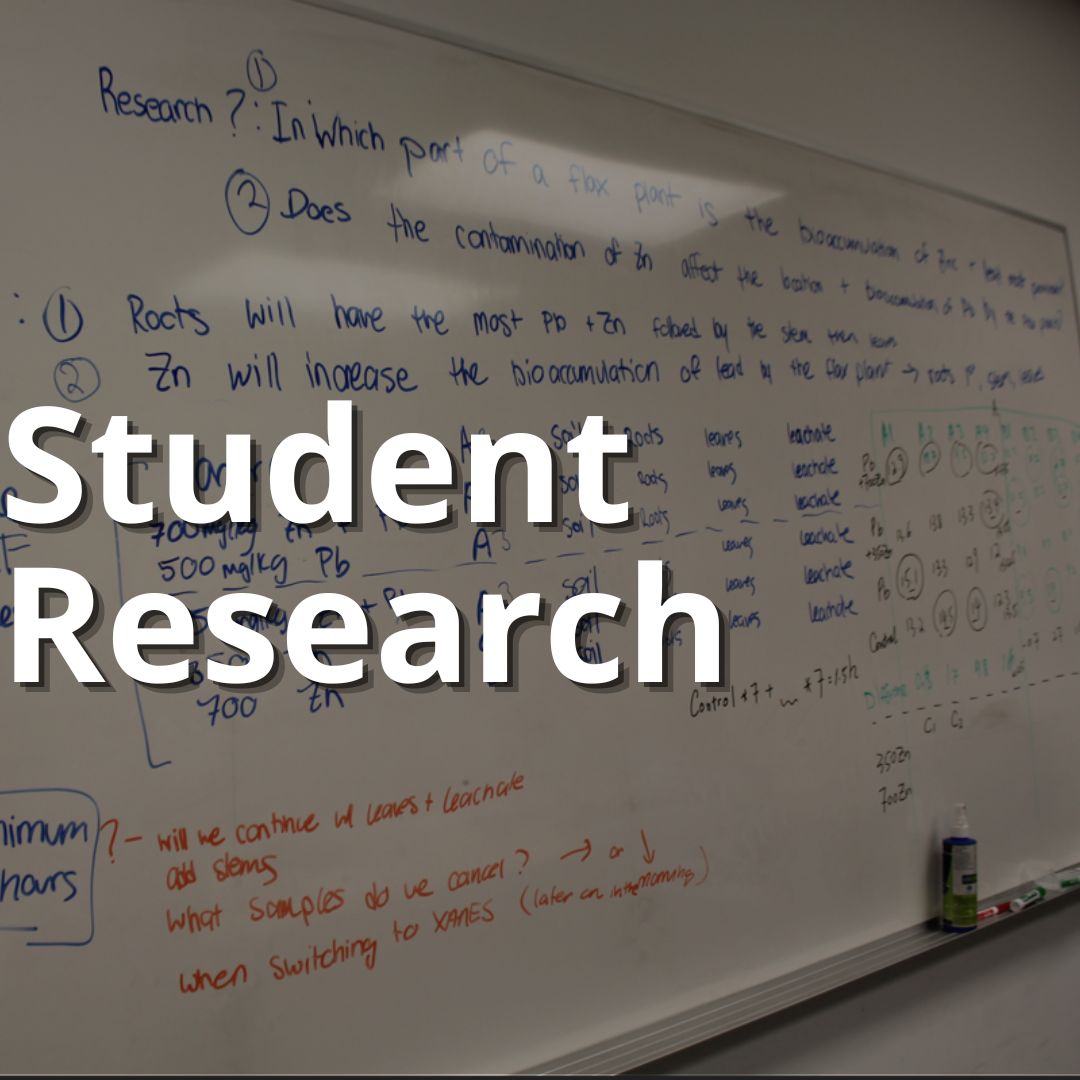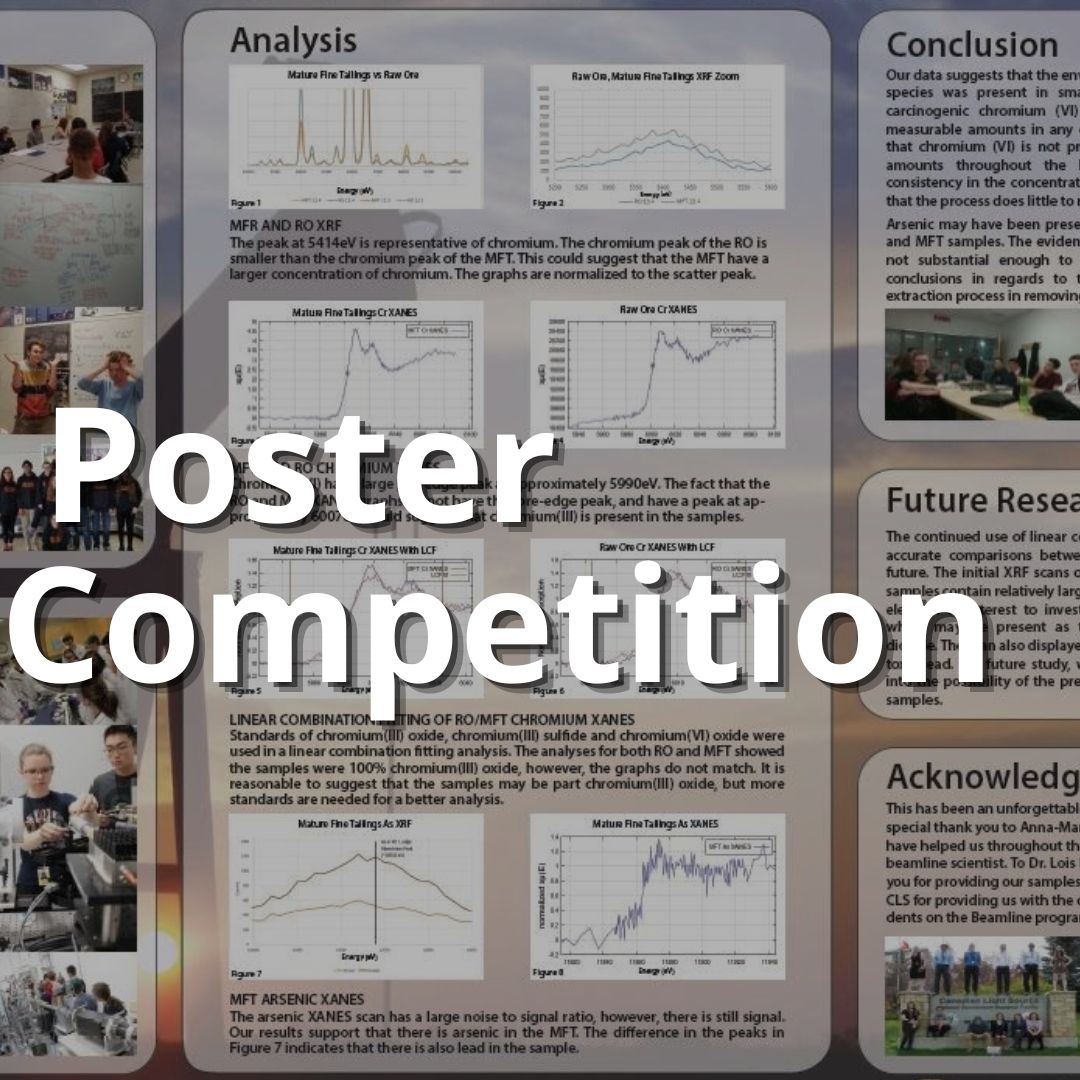"I hear and I forget. I see and I remember.
I do and I understand." - Confucius
Students on the Beamlines (SotB) empowers educators to apply inquiry-based experiential learning methods in their teaching while integrating Indigenous perspectives and Ways of Knowing, enhancing their ability to engage all their future students in the scientific process.
While, originally designed as a high school student experience, we have seen how transformational SotB can be for educators – and this has become a key focus of the program. High school and undergraduate students as well as educators at various levels have found this learning environment rich and rewarding. Through SotB, students gain access to an authentic science research experience using Canada's only synchrotron light source, while educators have the opportunity to explore new approaches, strengthen their practice, and expand their professional skills with dedicated support. CLS Education has both Educator and Elder Advisory committees that provide guidance in how we can integrate Indigenous perspectives and Ways of Knowing into inquiry-based learning. You will be partnered with a member of the CLS Education team (Anna-Maria Boechler, Alyx Mercredi, or Tracy Walker) to guide you and your students every step of the way.
Your students lead the entire process, from developing a project to presenting their findings, with guidance from mentors. Visit the Student Research or Poster Competition pages below to see the impact of SotB!
Interested in Students on the Beamlines and wondering who can apply?
The SotB program is intended for educators who have a connection with CLS Education. A “connection” means having engaged with members of the CLS Education Team through professional development sessions, collaborative work, or previous participation in SotB or other student programming—some form of shared experience. This helps ensure you have a sense of what CLS is like and how the program works.
We value trust and collaboration as essential to creating a safe, supportive, and meaningful experience for youth in our facility. If you’re unsure whether your experience meets this criteria or would like to explore possible pathways, please contact us to discuss your eligibility.
Application deadline is April 1, 2026 (see below for details).
Want to learn more about Students on the Beamlines?
Join us for a Students on the Beamlines information session, where you’ll learn about the program and explore whether it’s a good fit for you and your students.
Our next virtual session takes place on Saturday, January 24, from 10:00–12:15 CST.
Click the button below to learn more and to register.
Getting Started
- SotB is an immersive and impactful teaching experience for educators.
- Long-term research projects are recommended for a rich learning experience.
- The research project is a team effort with diverse students bringing various skills and talents.
- We are committed to walking a path of reconciliation and support you to walk with us.
- Students must be 14 or older.
- Safety is the primary consideration in all decisions.
- The research project is for any curious student; grades are not a criteria for participation.
- Check out the SotB Corner on our Virtual Classroom for project examples and helpful info!
Student on the Beamline Information Session
Virtual
Saturday January 24, 2026 10:00am-12:15pm
Want to learn more about what this Hôkwa* is all about?
Attend our next information session for educators interested in guiding their students through our unique Students on the Beamline program. The session will cover the application process, provide tips and tricks, outline the expectations for educators, and illustrate what a typical Students on the Beamline project entails.
*Hôkwa means a sense of wonder and excitement; taught to us by Elder Tim Eashappie Sr, a Lakota speaker.
If selected more specific training, both synchronous and asynchrotonous is mandatory.
Submit an Educational Proposal Application
Deadline April 1, 2026
The LINAC is recovering; CLS is delivering beam; and SotB groups that have been waiting patiently are being scheduled for their beamtime. We are having a limited call for applications this spring. A maximum of 3 groups will be selected. Another call will follow in October 2026.
The Educational Proposal Application, written by the educator, highlights the expected learning outcomes for both educators and students participating in the SotB experience. This is not a science proposal. If selected, the project begins with mentors and Canadian Light Source staff providing guidance and advice on the scientific process as students develop their research project.
If you are elligible to apply, please request an application package by sending an email to education@lightsource.ca.
Please be aware that beamtime and science mentorship support are limited, making the selection process highly competitive. Consequently, spots in the program are also restricted.


